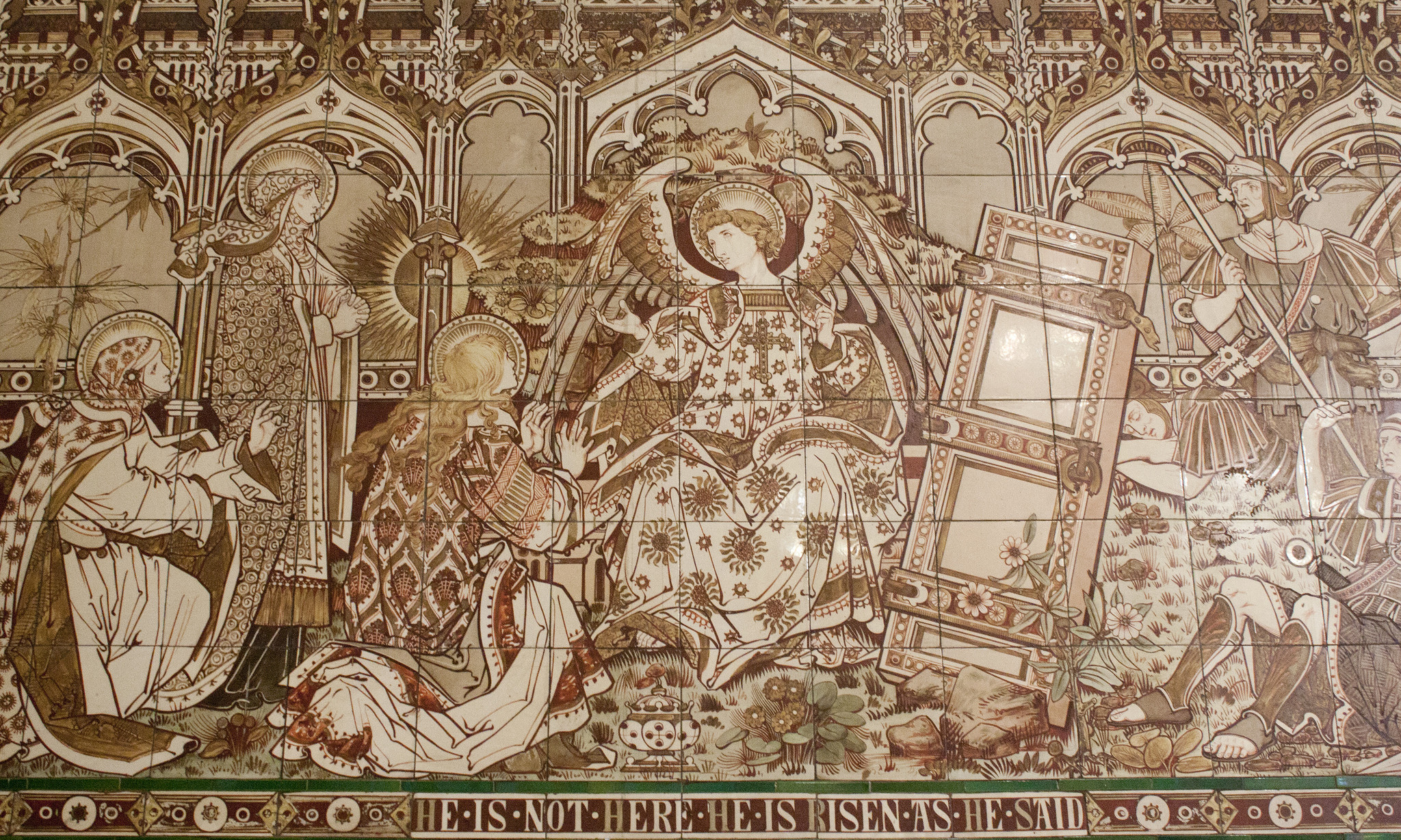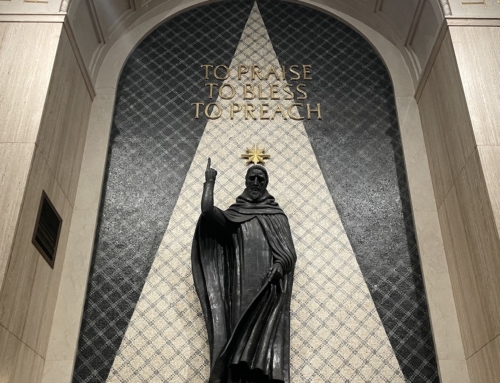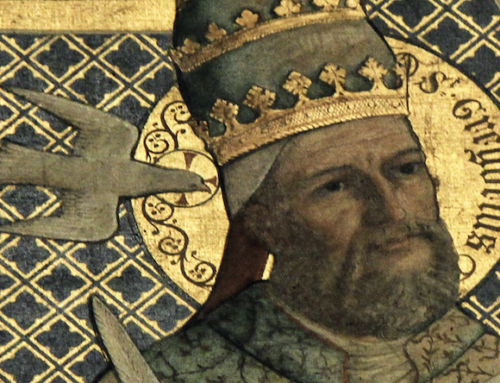Isn’t it peculiar that, in all of His post-Resurrection appearances, the risen Lord never manifests His glorified body to the tax collectors and sinners He had spent so much time with prior to His passion? Here is a Man whose ministry was in large part defined by those He chose to keep company with at table: the disreputable prostitutes, the traitorous tax collectors, the cantankerous Pharisees. Yet there is no indication anywhere in the Gospels that Jesus ever presents Himself in their sight after Good Friday. They never see, like Thomas, the wounds in His holy and venerable hands or trace with their fingers the path of the lance that broke open His pierced side.
In order to look back and understand what our Lord was doing, perhaps we first should look forward to the Lord’s second coming, that great and terrible day of the Lord (Joel 2:31, cited in Acts 2:20). In his hymn “Lo! He Comes with Clouds Descending,” Charles Wesley describes the truly awe-filled scene in which the reprobate must stand before the judgment seat of God:
Every eye shall now behold Him,
Robed in dreadful majesty;
Those who set at naught and sold Him,
Pierced, and nailed Him to the tree,
Deeply wailing, deeply wailing, deeply wailing,
Shall the true Messiah see.
The risen Christ, rather than being a consoling figure beckoning the sinner to repentance, is seen as singularly “dreadful.” How can this be? Consider this verse in light of a passage from a homily of Blessed John Henry Newman entitled “Holiness Necessary for Future Blessedness”:
He [the irreligious man before Christ in judgment] would perceive himself to be an isolated being, cut away by Supreme Power from those objects which were still entwined around his heart. Nay, he would be in the presence of that Supreme Power, whom he never on earth could bring himself to steadily think upon, and whom now he regarded only as the destroyer of all that was precious and dear to him. Ah! he could not bear the face of the Living God; the Holy God would be no object of joy to him. ‘Let us alone! What have we to do with thee?’ is the sole thought and desire of unclean souls, even while they acknowledge His majesty. None but the holy can look upon the Holy One; without holiness no man can endure to see the Lord.
It was well enough for Pharisees, sinners, and tax collectors to have borne the face of God cloaked in human vesture. But the “true Messiah,” once he had been gloriously “robed in dreadful majesty,” shone so brightly that He would have induced wailing by all those who had not yet surrendered their anemic hearts to this Divine Physician. The Lord’s unwillingness to directly impose Himself upon fragile sinners before the hour of judgment is, in reality, in perfect keeping with His divine mission all along: it is an act of supreme mercy, akin to the God of all creation becoming a poor and lowly babe in a Bethlehem manger. And yet Jesus does not leave those wandering souls without helpers. For the Son of God, the true light that enlightens every man (John 1:9), gave the power which illuminates the way of salvation to his disciples. On this point St. Peter is clear:
He was not seen by all the people, but by witnesses whom God had already chosen—by us who ate and drank with Him after He rose from the dead. He commanded us to preach to the people and to testify that He is the one whom God appointed judge of the living and the dead… [and] that everyone who believes in Him receives forgiveness of sins through His name. (Acts 10:41-43)
In his long poem Magdalen, Dunstan Thompson depicts one famous sinner to whom Christ had chosen in His mercy to bear witness concerning His resurrection:
For as her love for Christ had grown the greater,
Her heart, expanding, rose the lighter
In the rarifying air.
She came to look on others
With His eyes,
And prize
The most disparate people.
…
In the slums of sin.
Who was she, then,
To falter at loving
Those living
As she had lived herself—
…
Those she had turned away from once
With the sharp disdain of terror,
As she thought of having herself been involved
In their catastrophic error,
She prayed for now
Always with feeling,
And never would allow
Herself to be too tired to plead
For anyone
Whom she had known
At Herod’s court,
Hopeful she was not failing
Them in their need—
Whom now she loved
As not before.
The story of a soul’s salvation is the triumph of love, rightly ordered. As one of the saints explains to a sojourner from hell in C.S. Lewis’ The Great Divorce, “You cannot love a fellow-creature fully till you love God.” Once we begin to love God, we can in turn begin to love others in a purified, spiritual way. Such a love brings us each closer to our destiny.
See what love the Father has given us, that we should be called children of God; and so we are. The reason why the world does not know us is that it did not know Him. Beloved, we are God’s children now; it does not yet appear what we shall be, but we know that when He appears we shall be like him, for we shall see him as he is. (1 John 3:1-3)
✠
Image: Fr. Lawrence Lew, O.P., Resurrexit sicut dixit (used with permission)







